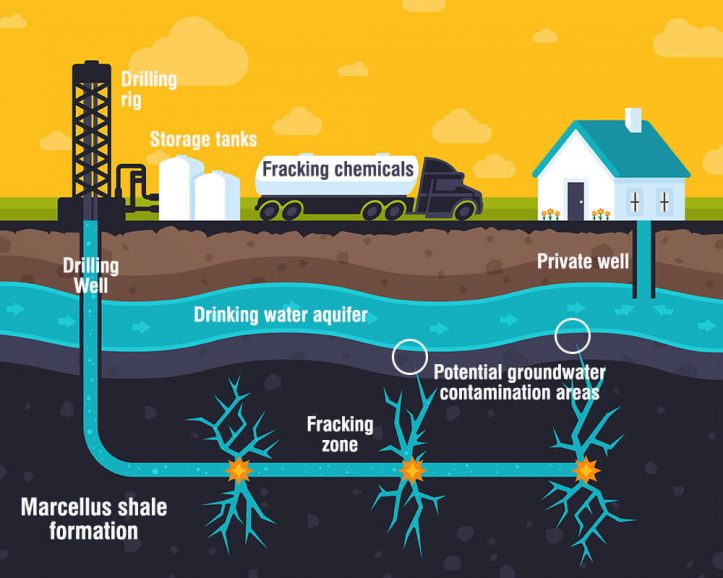What is Fracking? Hydraulic fracking, or hydraulicfracking, hydraulic stimulation, hydraulic fracture, hydraulic firming, is an energy-producing technique involving the hydraulic fracturing of shale rock formations by a high-pressure liquid injected into the cracks.
This process can be used to extract natural gas, oil, and other fuels from shale deposits. As this technique was pioneered in the 1920s, it has since then been extensively used worldwide.

It is often compared to the process of hydraulic refinement, since it both involves the injection of fluids into fractures to remove small amounts of unwanted material. However, unlike hydraulic refinement, which uses large trucks and machinery to inject the anti-fracking fluid hydraulic fracking is done by hand. It involves only three equipment pieces – a pump, a truck, and a small machine used to pump and maneuver the truck fluid between fractures in the shale gas and oil rocks.
The most significant negative impact of fracking comes from the disposal of wastewater created during the procedure. Most natural gas and oil companies utilize “low-flow” wells that do not produce large amounts of wastewater, because the flow of liquids is so low. Nevertheless, high-flow wells can still create wastewater that contains high concentrations of toxins such as benzene and other chemicals that are carcinogenic. In addition, natural oil and gas drilling produce large amounts of wastewater, which is also contaminated with the same chemical toxins. In some cases, wastewater from fracking sites contains more toxins than that from a traditional oil well.
The practice of hydraulic fracking involves using extremely high pressure to fracture the shale layer of the earth in order to release the trapped natural gas and oil. The high pressure needed to do this allows liquids to escape from fractures at much greater rates than they would in other types of wells. As a result, there is an enormous amount of wastewater produced during hydraulic fracking operations, which is often contaminated with wastewater from other drilling sites.
There is also a risk that oil or gas will leak from the wells into the air, the water, or the soil. This can potentially contaminate the surrounding environment. If this occurs, it is likely that the effects will be severe. Oil and gas drilling companies are required by law to keep a certain level of protection around their drilling sites; however, the Environmental Protection Agency has placed restrictions on them, making them liable if they discharge contaminating wastewater into the air, the water, or the land.
Another environmental problem that has come up due to the fracking process is the leakage of methane, a highly potent greenhouse gas. Normally, methane is stored in the shale layer deep underground, but when an energy company fracks the shale to free the trapped gas, the trapped gases can seep out into the groundwater, the air, or the ground and cause serious harm to the environment. The main way that methane is released is through the drilling into the earth, and the procedure is commonly referred to as “hydraulic fracking.” When this happens, millions of tiny holes are created in the earth’s surface, and as more water is forced into the holes, the gas that is trapped within becomes trapped in even more microscopic pores.
When this happens, the trapped gases could potentially escape into the atmosphere, polluting the air. As well, when this happens, the fumes from the drilling site could be inhaled by people nearby. The drilling itself causes a great deal of noise pollution, because there are thousands of chemicals used during the process, and the spills can easily happen. A lot of the chemicals used are thought to be carcinogens, and there is evidence that these chemicals have been linked to a variety of cancers. Additionally, as the waters and the land near the fracking sites begin to poison, there is a strong possibility that wildlife populations could soon suffer.
These problems are particularly troubling in Pennsylvania, because the Marcellus and Utica shales are the most plentiful rocks in the state. These two shales have produced natural gas in the past, but the drilling methods used in the extraction of natural gas from these rocks poses many dangers. What is Fracking? This is an important issue that has been brought to light, because it is causing an immense amount of damage to the environment and the people living in the area. The drilling process, while much safer than older methods, still causes all sorts of problems that all can be avoided by using other safe methods for extracting natural gas.